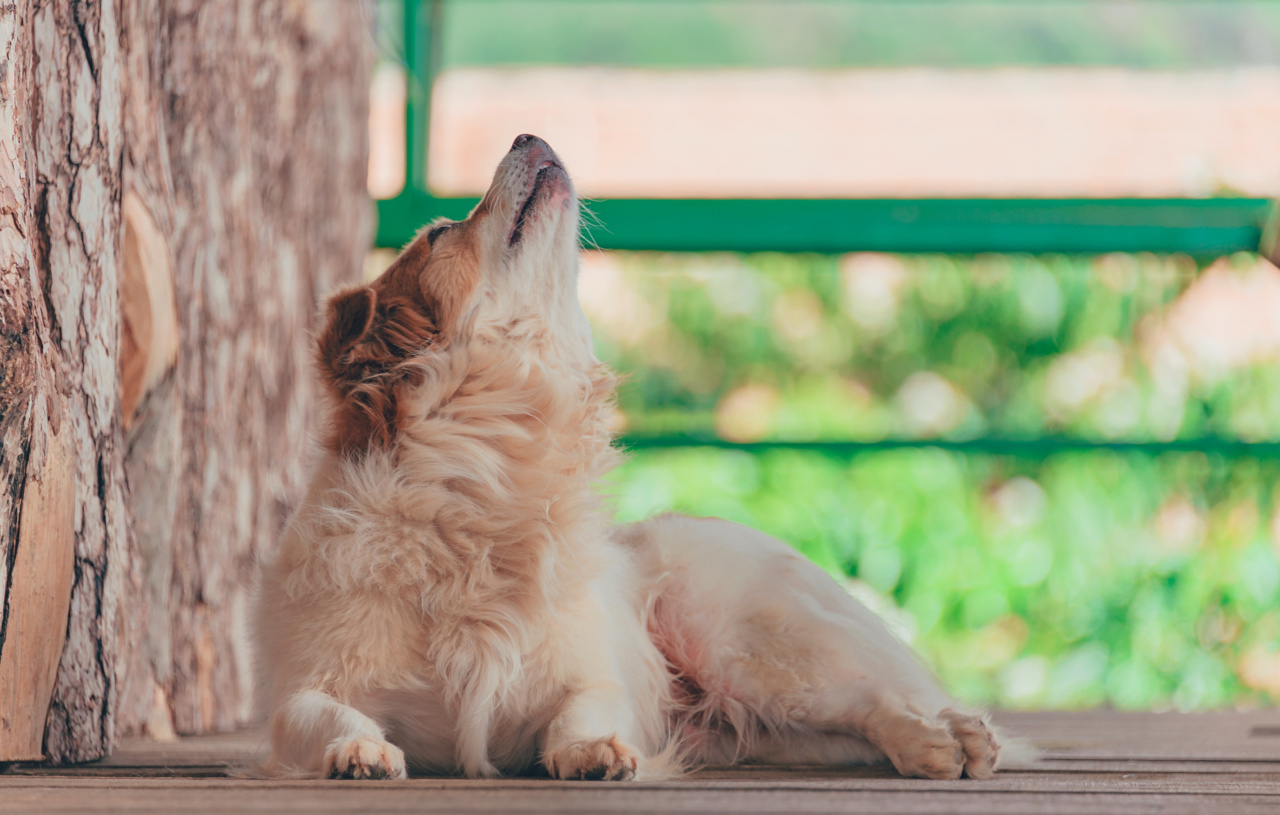Many dog owners have witnessed their furry friends howling along with certain songs, whether it’s a heartfelt ballad or an upbeat tune. It can be both amusing and perplexing to see your dog mimic the sound of a melody by howling.
But why do dogs do this? Is there a specific reason behind it, or is it just a coincidence? In this article, we will explore the fascinating world of canine behavior and delve into the possible explanations for why dogs seem to howl along with certain songs.
The Call of the Ancestors
One theory behind why dogs howl along with music is rooted in their ancestry. Dogs are descendants of wolves, who are known for their vocalizations, including howling.
Wolves use howling as a means of communication, often to locate other members of their pack or to signal potential danger. This instinctual behavior may still linger in domesticated dogs, leading them to howl along with certain songs or melodies.
The Emotional Connection
Dogs are incredibly in tune with their human companions and are known for their ability to pick up on emotions. It is possible that when your dog howls along with a particular song, they are responding to the emotional cues conveyed by the music.
Dogs are sensitive to the tone of human voices, and music often evokes strong emotions. If a song elicits a strong emotional response from you, your dog may be picking up on that and expressing their own emotions through howling.
Pitch and Frequency
Music, like all sound, has different pitches and frequencies. Research suggests that certain pitches and frequencies may be more likely to trigger a dog’s howling response.
The high-pitched tones often found in songs may resemble sounds that dogs naturally respond to, such as sirens or other animals’ vocalizations. Dogs may interpret these sounds as a cue to join in and sing along.
Howling as a Form of Expression
For dogs, howling can serve as a means of communication. They may howl to express their emotions, call for attention, or signal their presence.
When dogs hear a song that resonates with them, they might view it as an opportunity to communicate or express themselves. By howling along, they may be trying to join in the musical conversation or simply communicate their excitement or pleasure.
Attention-Seeking Behavior
Dogs are social animals and crave attention and interaction from their human companions. Howling along with songs could be a clever way for your dog to capture your attention.
If they notice that their howling leads to you giving them attention or even joining in yourself, they may continue the behavior as a means of seeking social interaction. It becomes a fun and interactive activity that strengthens the bond between you and your canine companion.
External Triggers
Sometimes, dogs may not be responding directly to the music itself, but rather external triggers associated with the music.
For example, if you always play a specific song or genre of music before taking your dog for a walk or giving them a treat, they may have learned to associate the sound with a positive experience. Consequently, when they hear that particular song or genre, they may instinctively howl in anticipation of the upcoming reward or activity.
How to Encourage or Discourage the Behavior
If you enjoy your dog’s musical endeavors and want to encourage their howling along with songs, there are a few ways you can do so. First and foremost, provide positive reinforcement by praising and rewarding them when they participate.
You can even create a special “musical time” where you play songs that you know elicit their howling response. However, if the howling becomes excessive or unwanted, it’s essential to address the behavior. In such cases, it’s best to distract your dog with toys or engage them in alternative activities to redirect their focus away from the music.
Understanding Your Dog’s Individuality
It’s important to remember that every dog is unique, and their reasons for howling along with songs may vary.
Some dogs may be more prone to howling due to their breed’s instincts, while others may have learned the behavior through previous associations. Understanding your dog’s individual personality and motivations can help you decipher why they engage in this quirky behavior and allow you to respond accordingly.
A Note of Caution
While howling along with songs can be a delightful and intriguing behavior, it’s essential to ensure that your dog is not distressed or uncomfortable when they do it.
If your dog appears anxious, fearful, or shows signs of distress while howling, it’s best to consult with a veterinarian or a professional dog behaviorist. They can help assess the situation and provide guidance on how to address any underlying issues.
Conclusion
While there may not be a definitive answer as to why dogs howl along with certain songs, there are several plausible explanations rooted in their ancestry, emotional sensitivity, and communication instincts.
Whether it’s a reminiscence of their wolf ancestors or a desire to join in the emotional experience, dogs have a unique way of expressing themselves through the universal language of music. As long as the behavior is not causing distress and both you and your dog enjoy the harmony, feel free to embrace the melody and create a musical bond with your canine companion.



























